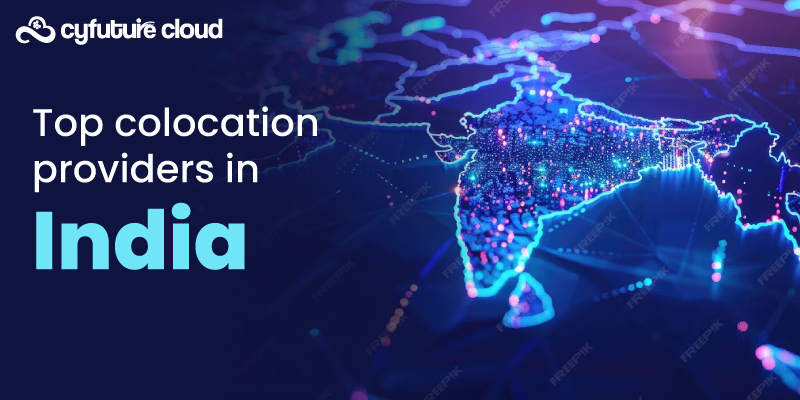Table of Contents
ChatGPT – you must have heard this term countless times from your colleagues, peers, and on the internet.
Perhaps you used it too and were also amazed at its swift response. But are you also one of those who think that ChatGPT can replace professional writers?
If Yes, then read on; this write-up is for you.
As we all know about the fact, Post-launch of ChatGPT in November 2022, one of the renowned names, Microsoft owned this AI chatbot and revolutionized the world of technology with over 77% adoption globally. US companies are increasingly deploying ChatGPT in writing code (66%), creating content (58%), and offering customer service (57%).
And that’s where people start thinking that ChatGPT is gradually replacing content writers. In fact, content writers were more worried about job losses due to AI than others.
But as a writer of an AI and IT content writing platform, I feel ChatGPT isn’t likely to replace writers.
I believe ChatGPT is like any other Artificial Intelligence platform that can be used as a tool that will make your work easy, that will help in improving productivity, streamline workflows and reduce turnaround time. Yet, human content writers remain more efficient than that.
In fact, the CEO of OpenAI (The company behind ChatGPT), Sam Altman, said himself that “ChatGPT is incredibly limited … it’s a mistake to be relying on it for anything important.”
Here are a few things that ChatGPT can’t do and writers can and make writers recognizable
Undoubtedly, ChatGPT is a large language model trained on diverse internet text. But still, there are a few things where ChatGPT can’t perform tasks and for which it has not been trained i.e., specific domain knowledge.

1. Originality
ChatGPT excels at processing vast amounts of information but falls short in generating entirely new ideas. Writers, armed with their creativity, can outshine AI any day.
In simple terms, ChatGPT admits, “While I can generate text like a human, true originality eludes me. My output relies on patterns and data I’ve learned.”
In essence, ChatGPT is fantastic for retrieving information from the internet, but it lacks the spark of originality. Only humans can birth fresh concepts, like creating unique cover art designs or crafting articles with novel insights not found online, such as “Underrated Tips Nobody Talks About Content Creation.”
2. Personal perspective
AI can provide information based on what we ask, but true understanding and unique insights come from personal experiences and perspectives.
ChatGPT: “I can generate text from different viewpoints, but I lack personal experiences, beliefs, and biases that shape human writing. Humans bring a special touch to their work by infusing it with their perspectives.”
Only humans can share personal stories, anecdotes, and experiences.
ChatGPT can’t capture the essence of a restaurant and its specialties like a human can.
The challenges and insights of someone with ADHD or other ailments are beyond ChatGPT’s reach.
These personal stories not only set us apart from technology but also help us establish our unique expertise. That’s when people seek us out for our experiences, not just the content.
3. Emotion
Emotions drive humans. Despite appearing emotional, AI such as ChatGPT does not possess human-like emotions. Even with advancements like Neuralink, replicating human emotions remains a distant goal.
In ChatGPT’s own words: “I can create text that appears emotional, but I don’t genuinely feel emotions. Human writers draw on their emotions and experiences to craft more authentic and relatable content.”
While ChatGPT can gather data from the web, it lacks the genuine emotional depth that a person who lived those experiences would have. It can produce content similar to Buzzfeed, but it can’t evoke the profound emotions that a human writer can convey.
The emotions we carry, which AI can’t truly understand, are a significant advantage when it comes to competing with artificial intelligence.
4. Social and cultural context
While ChatGPT can generate contextually appropriate text, it lacks the personal understanding of specific cultural events, like a Hindu wedding, as much as someone from that cultural background would. The intricate details and cultural nuances, often not found online, are better understood through personal experience within that culture.
In simpler terms, ChatGPT can create text for various contexts, but it doesn’t comprehend the depth of social and cultural nuances that shape human behavior and attitudes. Human writers, drawing from their cultural understanding, can weave more authentic and realistic stories.
Real-life social and cultural experiences serve as valuable insights for writers, allowing them to craft more genuine narratives—a capability that ChatGPT does not possess.
5. Critical thinking
At the core of human existence is the question “why.” Everything we do or say has a purpose. Unlike humans, chatGPT cannot analyze, evaluate, and synthesize information to form well-justified conclusions. It can’t think independently, consider different perspectives, or objectively weigh evidence.
In the words of chatGPT itself: “While I can create logical and coherent text, I can’t assess the reasoning, evidence, or assumptions behind it. Human writers use critical thinking to review and adjust their writing accordingly.”
Humans leverage critical thinking to make decisions involving trade-offs between different values or goals. In contrast, ChatGPT can offer information and options but can’t make decisions based on personal values or goals like a human.
The innovation that replaced jobs across various industries resulted from human engagement in creative and critical thinking. However, the popular AI chatbot can only provide information based on its training data, limiting its capabilities and possibilities.
Professions Where ChatGPT Is Useful Other Than Writing
When AI captures the spotlight, the inevitable debate ensues about its potential to replace human jobs. The World Economic Forum asserts that although certain roles may become obsolete, human presence in the workforce will endure.
The key lies in embracing AI as a collaborator, leveraging it to enhance our capabilities as we automate repetitive tasks. This approach liberates our time, allowing us to focus on cultivating and employing skills beyond the current reach of machines, such as strategic thinking, innovation, intricate problem-solving, and those rooted in emotional intelligence and empathy.
1. Lawyers –
To assist lawyers, ChatGPT and similar tools help by creating summaries of case notes and relevant laws and statutes drafting documents such as contracts or agreements. Also, enabling lawyers to reduce the amount of time spent researching and typing up documents.
It is more productive to dedicate this time to working directly with clients, negotiating with opposing parties and their lawyers, interviewing witnesses, and developing legal strategies. Ultimately, this will likely enhance their ability to deliver valuable and effective services to clients and thus increase their professional usefulness.
2. Computer Programmer
ChatGPT is not limited to human languages; it can generate code in Python, Javascript, and C++. While it can’t create highly complex programs for modern software applications, it’s valuable for crafting short routines, simplifying coding tasks, and checking code for bugs.
3. Email Marketing
ChatGPT revolutionizes email marketing with its powerful features, offering seamless collaboration, enhanced campaign planning, and compelling content creation. Utilize its capabilities for effortless cross-departmental communication, strategic campaign outlines, captivating subject lines, and personalized segmentation. With ChatGPT, streamline content creation, analyze campaign data, and optimize performance for impactful email campaigns.
4. Human Resources
HR professionals leverage ChatGPT for efficient job description creation, automating tasks like performance review reporting, and answering recruit queries. Chatbots handle routine inquiries, freeing up HR to focus on meaningful, personalized interactions, fostering a deeper understanding of employees, and addressing their challenges. Additionally, ChatGPT aids sentiment analysis on social media, providing insights into workforce perceptions and potential hires’ views on the company.
5. Data Analyst
ChatGPT and similar technologies excel in data analysis jobs by generating concise reports, summarizing information, and articulating insights. While it doesn’t create visualizations, it provides suggestions on effective chart types. Natural language AI tailors report for specific audiences and formats data within tables for enhanced clarity.
6. SEO and digital marketing
Analytics and Data.
- Compose Regular Expressions In Analytics Reporting
- Compose Complex Spreadsheet Formulas
- Composing SQL queries
Digital Marketing.
- Generate Audience Personas
- SWOT Analysis of any company
- S.M.A.R.T. Goals
- Craft A Newsletter
Productivity.
- Craft Pitch Emails
- Craft A Social Media Post
- Write Ad Copy
Technical SEO
- Generate FAQ Schema
- Generate HowTo Schema
- Create Robots.txt Rules
- Generate htaccess Redirect Rules
- Connect To APIs And Coding
Keyword Research.
- Get Keyword Ideas
- Get The Search Intent Of The Search Query
- Cluster Semantically Relevant Keywords
- Generate Related Keywords And Synonyms
- Generate Article Titles Based On Keywords
On-Page SEO.
- Generate Meta Descriptions
- Optimize For PAA Box And Featured Snippets
- Generate FAQ For The Product With Answers
- Suggest Heading Tags
7. Customer Services
Conversational AI, like ChatGPT, excels in customer service by automating responses to common queries, enabling agents to focus on personalized, complex issues for a better customer experience.
8. Salesperson
ChatGPT enhances sales roles by automating routine tasks like data entry and introductory letter writing. It supports chatbots for handling incoming inquiries, allowing sales professionals more time for relationship building, lead identification, and refining sales strategies.
9. Teacher
Teachers can leverage AI, like ChatGPT, not just to detect student cheating but also to enhance their own teaching. Automate lesson plan creation, get structure and topic suggestions, generate summaries, write class activity reviews, craft quizzes, and teach students about AI’s potential for answering questions and boosting learning capabilities.
10. Public Relations
PR professionals leverage ChatGPT’s writing skills to craft authentic social media posts for company news and messaging. They need a deep understanding of brand values to teach AI effectively. This technology aids in monitoring media and social mentions, generating summarized reports on discussions about the company. Mastering AI and automation allows PR pros more time for relationship-building with media, crisis management, and skill development in various aspects of their work.
The Verdict is Yours: Is ChatGPT the Right Fit for You Or Not?
In the end, the decision to use ChatGPT or human writers depends on your specific choice of business.
But in my personal opinion, ChatGPT is just an AI tool that will make life easier by enhancing work output by 74% to help you grow in different industries and professional fields
If we can use –
- Social media marketing tools – FeedHive, Predis.ai
- Email marketing tools – Optimail, rasa.io
- SEO (search engine optimization) tools – Jasper, Alli
- Conversion optimization tools –ai, crazyegg
- Lead enrichment tools –ai, albert
- Landing page and lead capture tools – Elementor
- Graphic creation tools –ai, Uizard, Adobe Firefly
Then why not writing tools?
In technology, one always keeps a keen eye on the progressive technologies that can shape and benefit a lot of people, like cloud infrastructure, Kubernetes, DevOps, and server colocation. Similarly, artificial intelligence (AI) is changing and improving various aspects of our lives.
On a lighter note – The above content is written by a Human Writer.
Recent Post
Send this to a friend

 Server
Colocation
Server
Colocation CDN
Network
CDN
Network Linux
Cloud Hosting
Linux
Cloud Hosting Kubernetes
Kubernetes Pricing
Calculator
Pricing
Calculator
 Power
Power
 Utilities
Utilities VMware
Private Cloud
VMware
Private Cloud VMware
on AWS
VMware
on AWS VMware
on Azure
VMware
on Azure Service
Level Agreement
Service
Level Agreement 



















